Seven Days in May (1964)
“Senator, we’re talking about the survival of the United States.”
|
Synopsis: |
|
Genres, Themes, Actors, and Directors:
Response to Peary’s Review: Freakiest of all is Burt Lancaster’s “sinister portrayal as a rightwing extremist, the Chairman of the Joint Chiefs of Staff, who plans a military coup.” The relevance to current politics, albeit through a different lens of concern, couldn’t be starker: when a group of individuals is convinced they’re right and the well-being of their nation is at risk, we know they will stop at nothing. As Peary writes, this is a “smart, well-acted, suspenseful film”, bolstered by Frankenheimer’s innovative use of camera angles: … Ellsworth Fredericks’ stark cinematography, and strong performances by the leads and many of the supporting players — including Martin Balsam as a loyal advisor: … and Edmond O’Brien’s Oscar-nominated role as an alcoholic Southern senator (and one of March’s oldest friends). Unfortunately, Ava Gardner’s role as a boozy mistress to Lancaster feels gratuitous, though she’s essential to the plot. This political thriller would make an excellent double-bill with Fail Safe (1964) if viewers can handle the pressure (though perhaps Dr. Strangelove would be needed as a darkly comedic chaser). Note: Watch for John Houseman in his uncredited screen debut as a key player in O’Brien’s hunt for evidence. Notable Performances, Qualities, and Moments:
Must See? Categories
Links: |
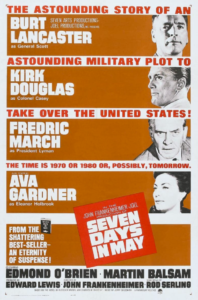
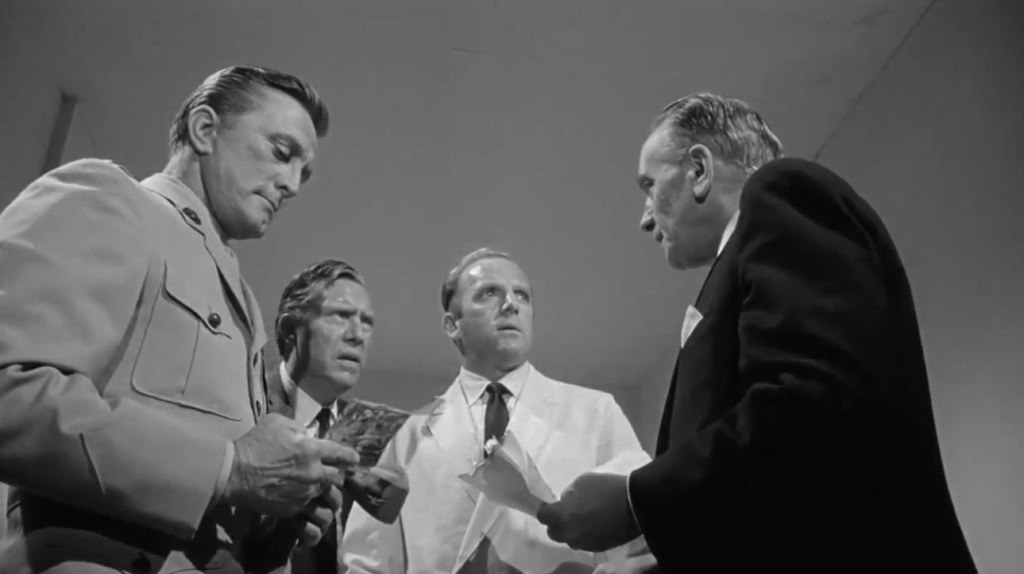
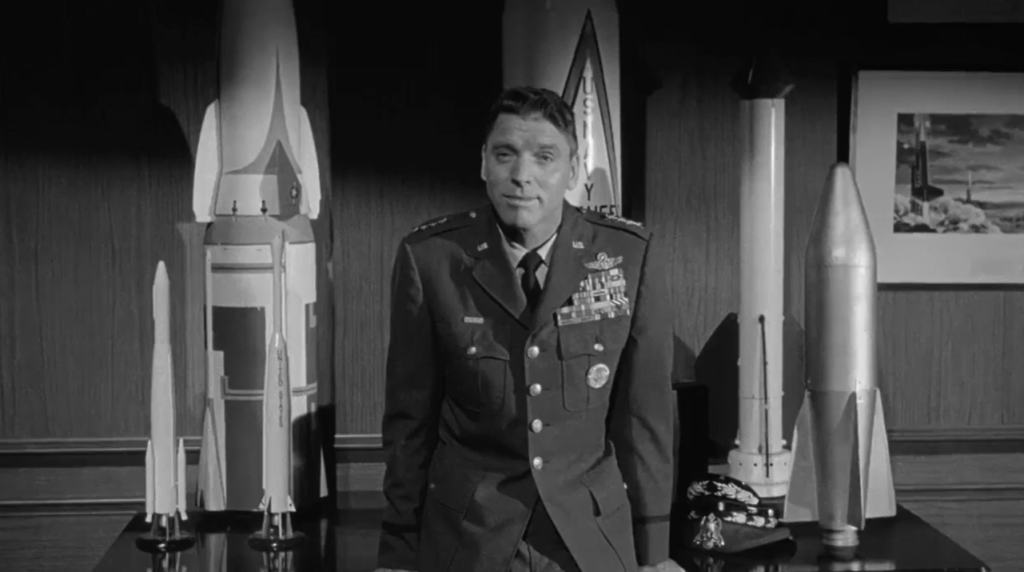
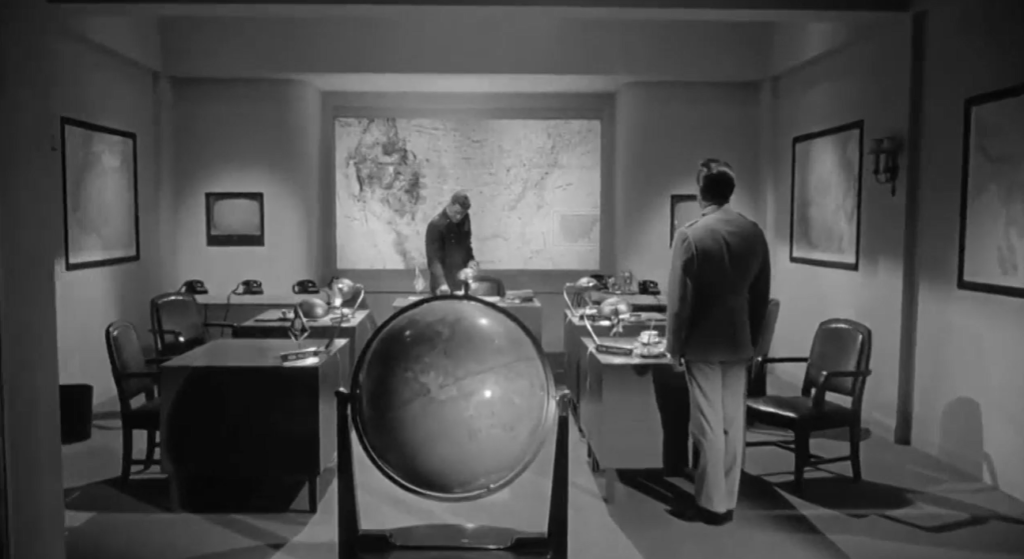

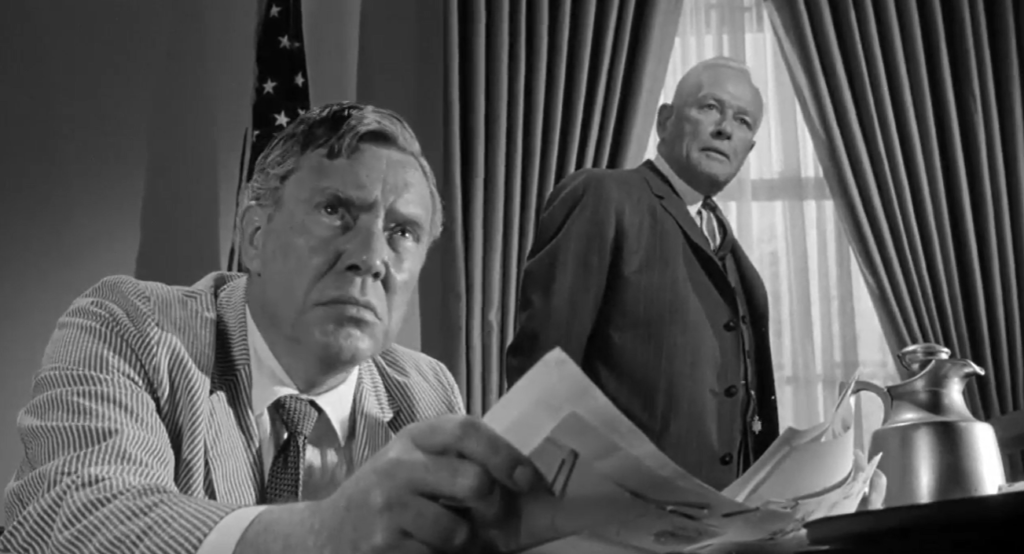
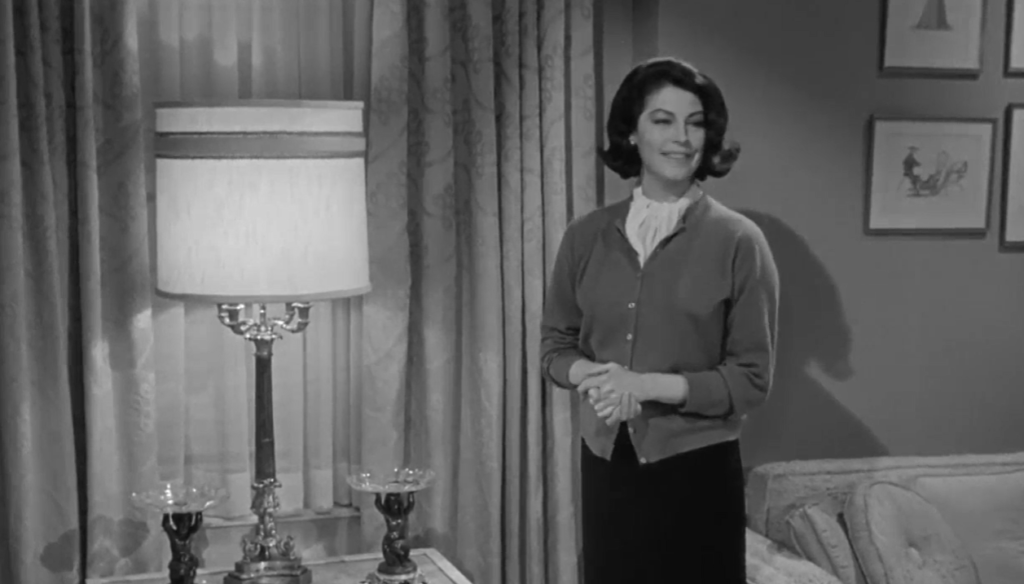
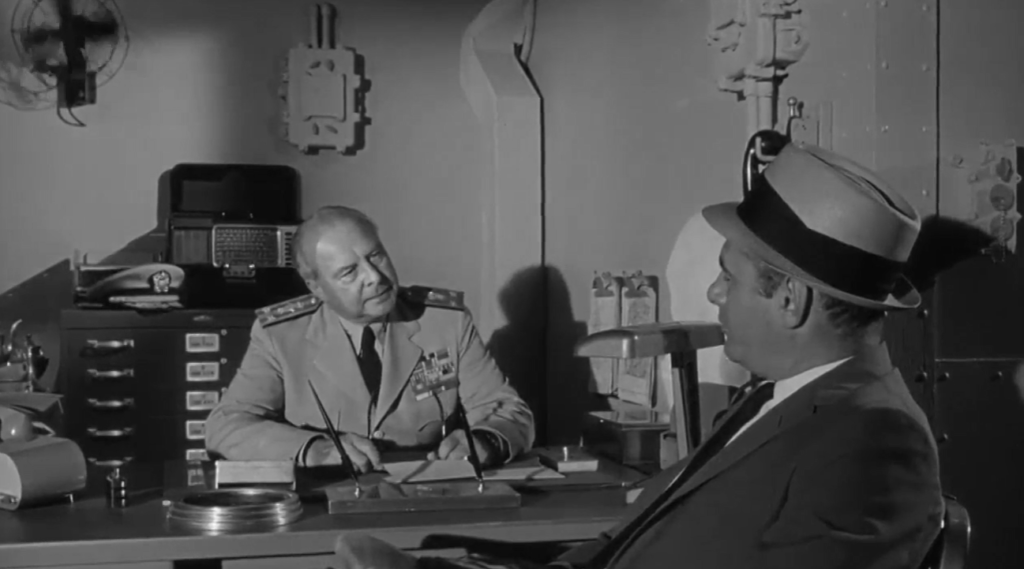
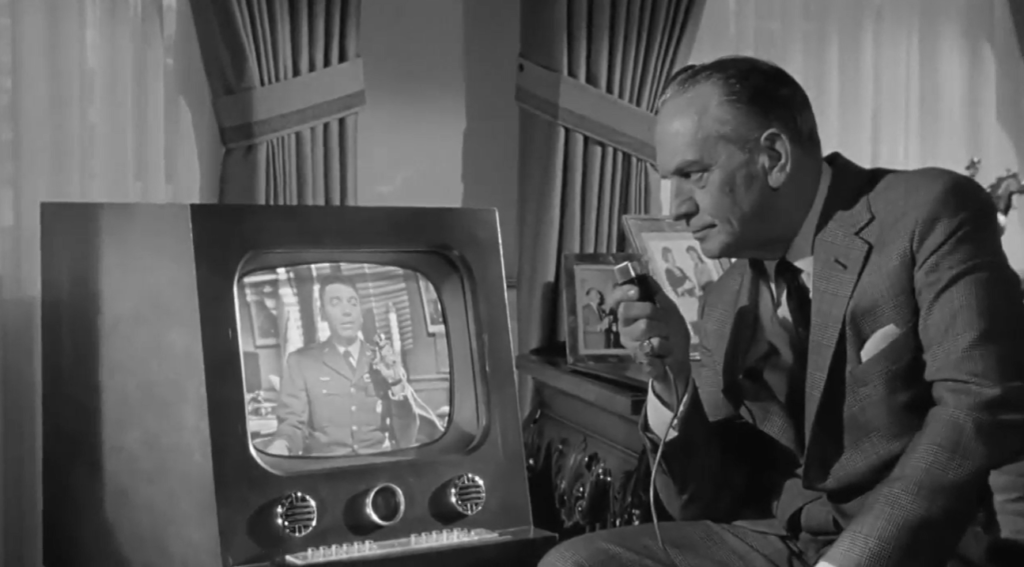
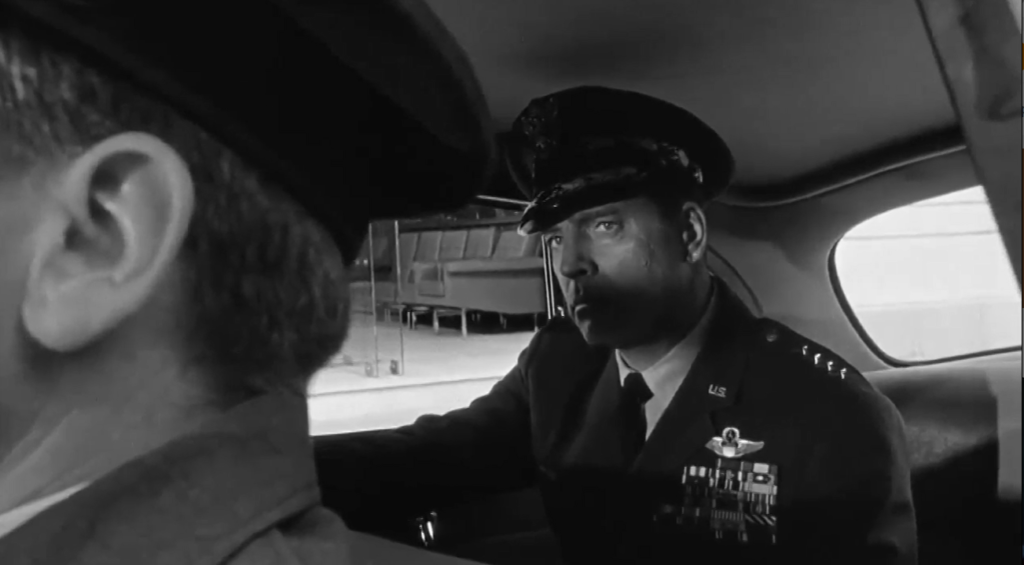
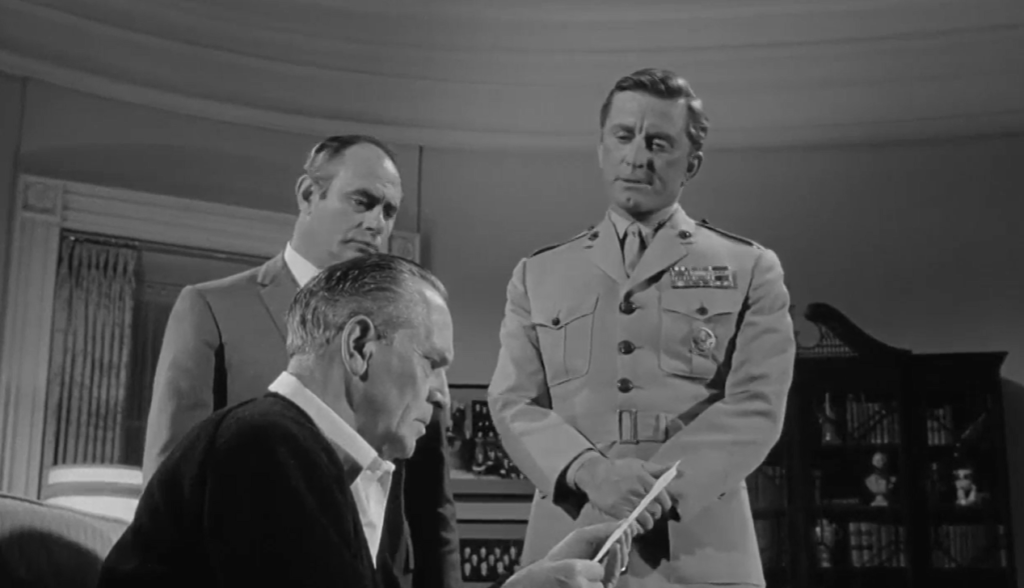
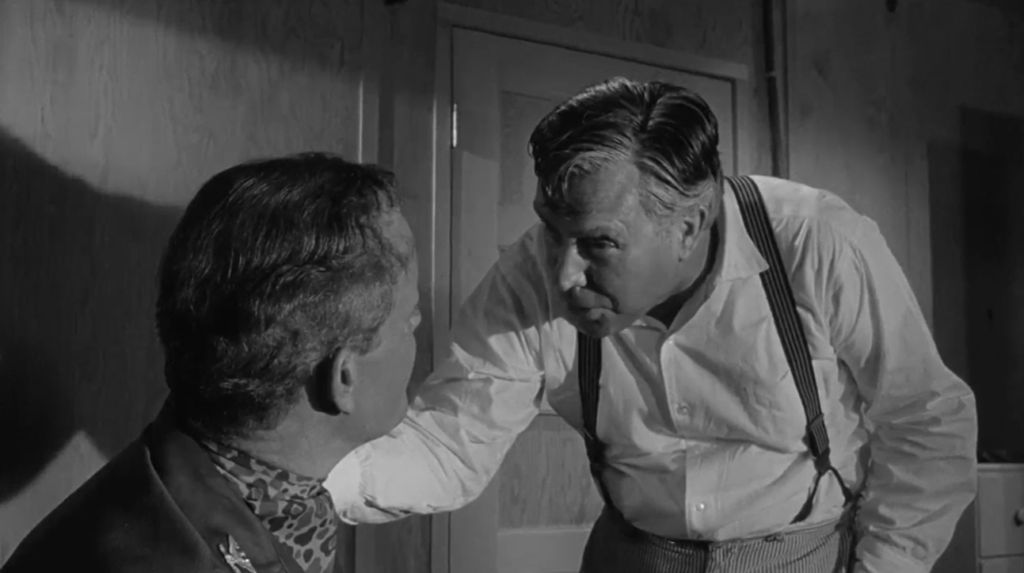
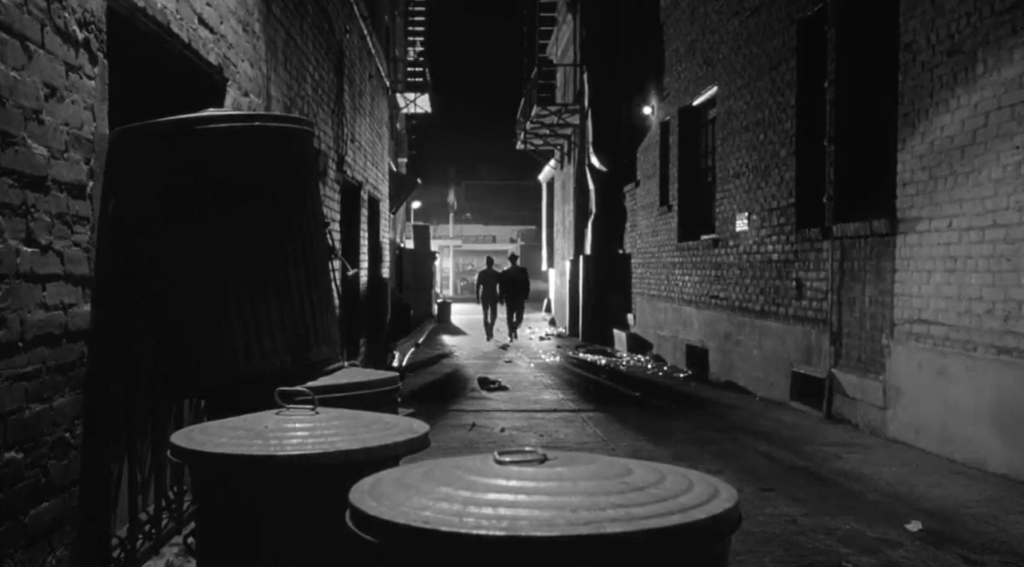
2 thoughts on “Seven Days in May (1964)”
Rewatch (4/25/21). Must-see, as a still-relevant and still-sturdy classic. As posted in ‘Film Junkie’ (fb):
“Mr. President – have you ever heard of a military unit known as ‘Econ–‘ — ‘Ecomcon’?”
‘Seven Days in May’: In light of the attempted coup of January 6th, John Frankenheimer’s flawless 1964 film remains strongly relevant.
When the based-on-certain-people and inspired-by-certain-facts source novel by political journalists William W. Bailey II and Fletcher Knebel novel (which I haven’t read) was published two years prior, it was a notable bestseller – and found particular favor with President Kennedy, who deemed its premise plausible. Such an opinion apparently irked the Pentagon – which did not want a film to be made of the book. But, to aid the filmmakers, Kennedy went on vacation so that the film’s opening protest / riot scenes could be captured in front of the White House. (Kennedy was, of course, assassinated before the film’s release. But that’s anther story… or is it?)
Unlike what we experienced on January 6th (powered by Trump supporters), the film’s planned takeover is masterminded by the Joint Chiefs of Staff, led by its Chairman Scott (Burt Lancaster). Scott is appalled by a nuclear disarmament treaty agreed to by the Russian government and President Lyman (Frederic March) – so, with thoughts of a junta, he puts a covert plan in motion. Sensing stirrings of secret maneuvers (as he vaguely puts it, “capabilities in military intelligence”), USMC Col. Casey (Kirk Douglas) jumps in to unmask Scott’s eagle-intent.
Near the end of the film, March goes so far as to state that Scott (though part of a “lunatic fringe”) isn’t the villain in the scenario he planned: “The enemy is an Age – a Nuclear Age. It happens to have killed man’s faith in his ability to… influence what happens to him.”
What mainly keeps this film of interest is its theme of subterfuge – which has changed forms over the more-recent decades but which never seems to be far from the doors of American government.
The film’s screenplay is by Rod Serling (and, while watching this time, I became more curious about the book). What’s great about the work of DP Ellsworth Fredericks is that the camera remains calm and fluid throughout, as though it were eavesdropping. Jerry Goldsmith is judicious in his film score, accenting key plot twists.
The acting is first rate, with the following (along with the leads) each doing dynamic work: Ava Gardner, Edmond O’Brien, Martin Balsam, Andrew Duggan, George Macready, John Houseman (uncredited in his film debut), etc.
A good part of the film’s tension rests with the nature of this type of insurrection: Who is part of it and who isn’t? Who can be trusted and who can’t?
Interestingly, in 1983, a four-part series based on the book (and called ‘The Last Argument of Kings’) was made for television in Russia.
Terrific thriller and arguably Burt Lancaster’s best performance as the ice cold general with the three barrelled name – James Mattoon Scott.